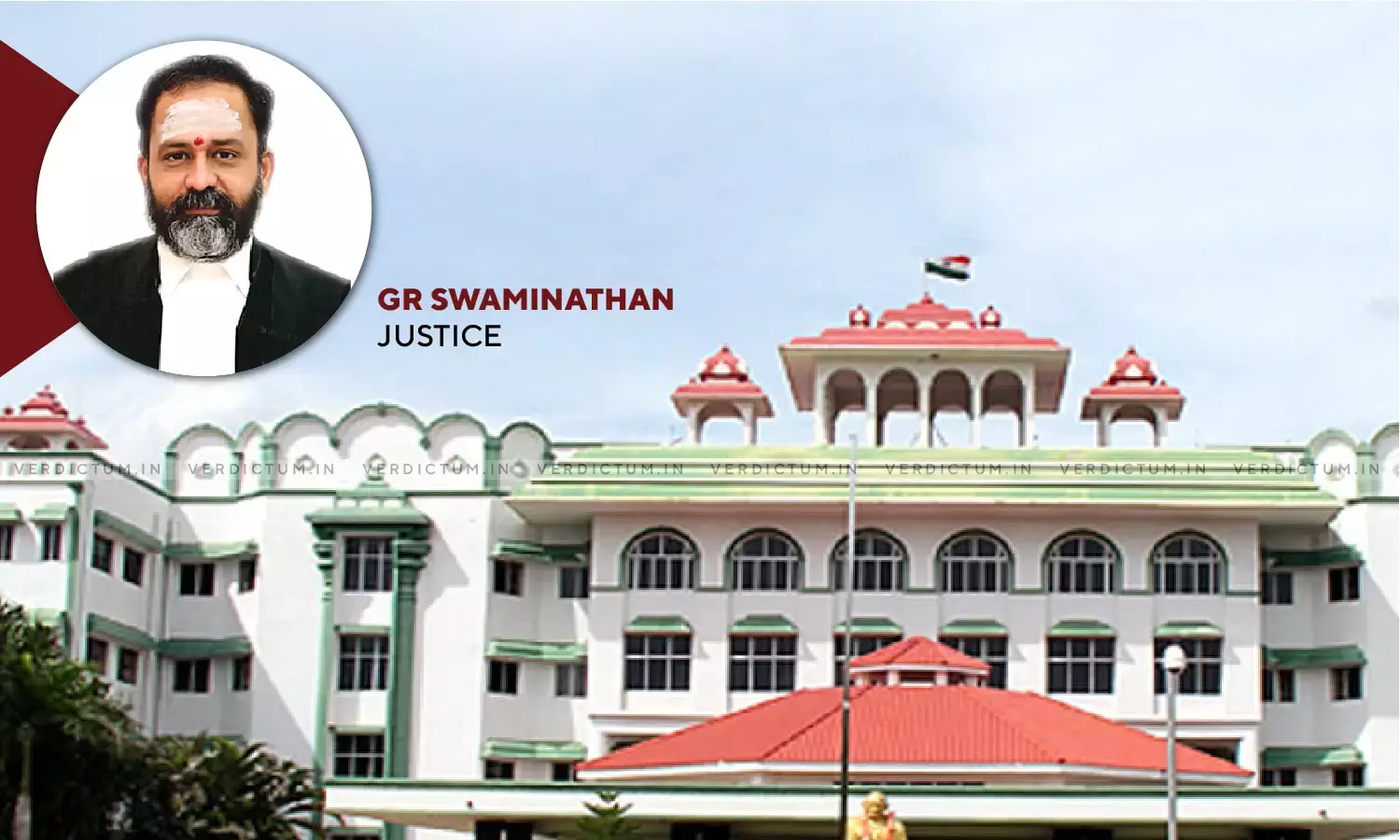No Justification In Restricting Reasonable Accommodation Only To Those Suffering From Disabilities: Madras HC Allows Student’s Plea To Appear In NEET UG Exam Wearing Diaper
The Madras High Court allowed the writ petition of a student who sought permission to appear in the NEET (UG) Exam 2024 by wearing a diaper.
The said student was undergoing treatment for LETM/NMO/Spectrum Disorder/Neurogenic Bladder on OPD basis and hence, approached the Madurai Bench.
A Single Bench of Justice G.R. Swaminathan said, “There is no justification in restricting the principle of reasonable accommodation only to those suffering from disabilities recognised by RPwD Act, 2016. All persons having disability have special needs. That does not mean the disabled as defined in the statute alone have special needs. Beneficial principles and doctrines have to be expansively construed and applied.”
Advocate J. Anandakumar appeared for the petitioner while Advocate Subharanjani Ananth appeared for the respondents.
Facts of the Case -
The petitioner was a young woman aged about 19 years and desired to appear in NEET (UG) - 2024. She had a special requirement. When she was around four years old, she met with a gruesome accident and suffered burn injuries on the face. She was scalded by hot oil. Therefore, she was taking treatment for LETM/NMO/Spectrum Disorder/Neurogenic Bladder on OPD basis.
Her doctor certified that she had lack of urine control and that she needs to wear diaper continuously which also has to be frequently changed. Hence, she called upon the authorities to permit her to sit in the examination hall wearing diaper and allow her to change once or twice depending on her condition. Since her representation did not elicit any response, the writ petition was filed.
The High Court after hearing the contentions of the counsel observed, “Once it is recognised that an eligible candidate is entitled to write a given examination, she must be placed on the same footing as any normal candidate. That is why, a disabled candidate is statutorily permitted extra time to complete the examination. If the requisite facilities are not available and the special treatment is denied, the candidate has only one option : she cannot take the test. That would necessarily constitute a grave breach of the equality mandate set out in Article 14 of the Constitution of India. Article 15(3) of the Constitution enables the State to make special provision for women and children.”
The Court added that every examination centre must have suitable toilet facilities with water amenities and they must keep a minimum number of sanitary products near the toilets so that any girl who has come unprepared may use them.
“The girl candidates must be allowed the use of rest rooms when required. The rest rooms can be thoroughly inspected in advance and regularly so that there is virtually no need for frisking the candidates for the second time. This will save the candidates' precious examination time. It is the duty of the authorities to spread awareness so that the candidates are not put to any stress at all. In the dress code, it would have been appropriate if the clause specifically permitted wearing of sanitary pads by the girl children. The absence of such a clause and the failure to respond to the petitioner's representation led to the filing of this writ petition”, it noted.
The Court, therefore, directed the examination authorities to bear the special needs of girl children in mind and provide for reasonable accommodation.
“I place on record that considering the special facts and circumstances peculiar to the writ petitioner, the first respondent had fairly agreed to the petitioner's request and have undertaken to issue suitable instruction to the city examiner”, it concluded.
Accordingly, the High Court allowed the writ petition.
Cause Title- Monisha v. The National Testing Agency & Anr.
Appearance:
Petitioner: Advocates J. Anandakumar and V. Purushothaman Reddy.
Respondents: Advocates Subharanjani Ananth and P. Karthick.




